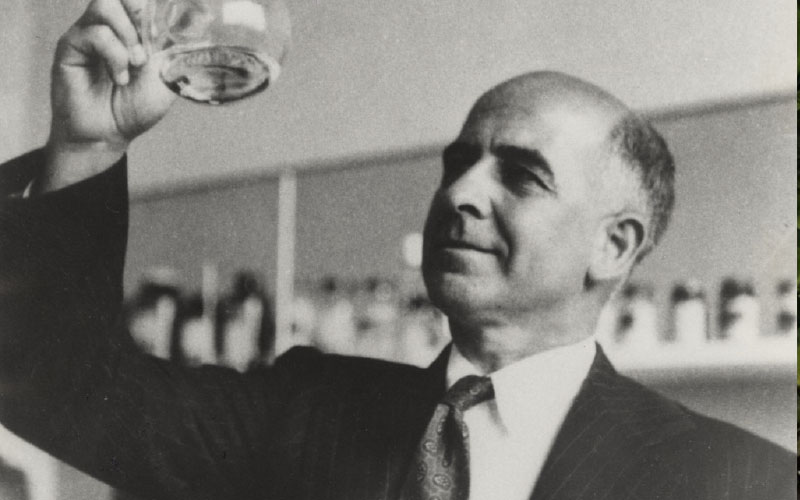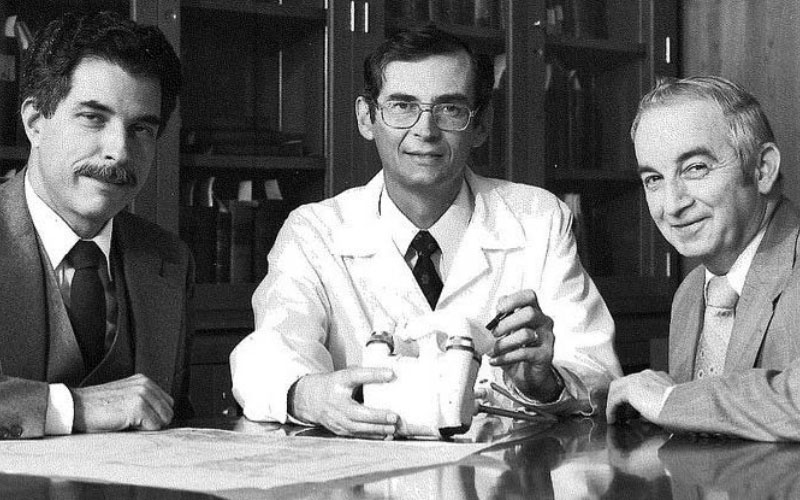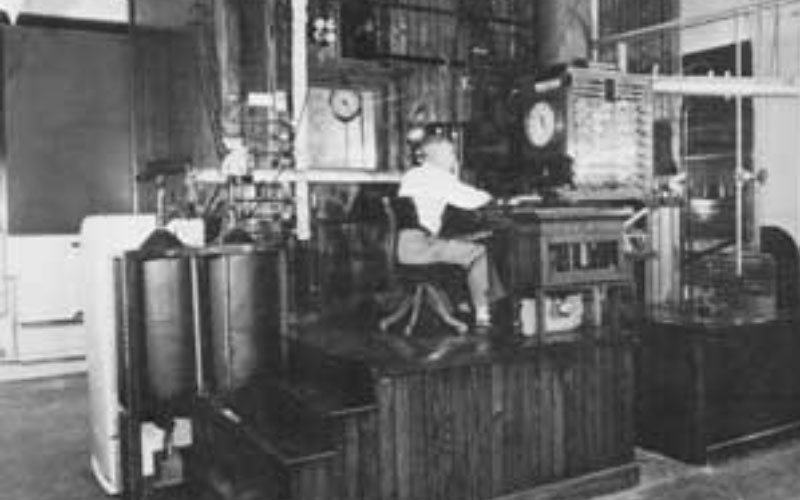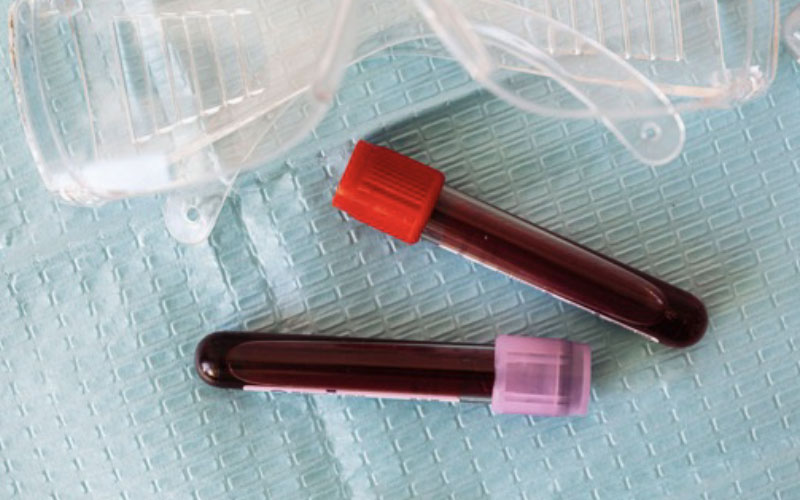By Holly Riddle
Current headlines tout Penn State’s prowess in all things research and innovation.
In 2021, the university benefited from $993.1 million in research expenditures, with $93.1 million dedicated with industry and privately sponsored research and $610 million dedicated to federal research. Each and every year, the university ranks near-first in annual spending on science and engineering research.
While this is all newsworthy today, Penn State’s position as a hub of innovation isn’t a recent development. The university boasts a track record of inventions and discoveries that stretches back nearly to its inception. Here are 7 of the most notable from more than a century ago to as recently as last month.
- Birth Control
 Russell Marker. PHOTO: Penn State
Russell Marker. PHOTO: Penn State
In the 1930s, Penn State’s Russel Marker conducted research synthesizing progesterone. This work led to the creation of the birth control pill and other medical applications.
- The Pacemaker
 Three members of the interdisciplinary team that developed the heart-assist pump, from left: Gerson Rosenberg, Dr. William S. Pierce, and James H. Donachy. PHOTO: Penn State
Three members of the interdisciplinary team that developed the heart-assist pump, from left: Gerson Rosenberg, Dr. William S. Pierce, and James H. Donachy. PHOTO: Penn State
In the 1970s, The Milton S. Hershey Medical Center and Penn State College of Engineering personnel worked together to develop a “long-life rechargeable heart pacemaker.” It was “the first surgically implantable, seam-free, pulsatile blood pump to receive widespread clinical use.”
- Kepler-186f
 Artist concept. IMAGE: Penn State
Artist concept. IMAGE: Penn State
Kepler-186f might not be as recognizable to the average person as, say, pacemakers and birth control. That said, this discovery is still pretty impressive (and a little more recent). About a decade ago, Penn State astronomers discovered what would become known as Kepler-186f.
What exactly is it? According to a Penn State press release, it’s “the first validated Earth-size planet to orbit a distant star in the habitable zone — a range of distance from a star where liquid water might pool on the planet’s surface. The discovery of Kepler-186f confirms that Earth-size planets exist in the habitable zones of other stars and signals a significant step closer to finding a world similar to Earth.”
- The Calorimeter
 The respiration calorimeter, with Raymond Swift, seated, during an experiment in 1955. PHOTO: Penn State
The respiration calorimeter, with Raymond Swift, seated, during an experiment in 1955. PHOTO: Penn State
Invented in 1902, the Calorimeter made major waves in the agricultural sciences. Inventor Henry Armsby used the device to uncover valuable data such as how much energy certain foods provided to livestock, as well as how much of that energy went to the livestock then producing products like milk or meat. This information could then be used to determine higher-value food sources within the industry.
- The Field Ion Microscope
 Erwin Mueller. PHOTO: Penn State
Erwin Mueller. PHOTO: Penn State
Another industry-specific — but still incredibly important — invention to come out of Penn State is the Field Ion Microscope. Developed in the mid-1950s by Penn State professor Erwin Mueller, the microscope allowed scientists to, for the first time, observe individual atoms.
- The Bernreuter Personality Inventory
 IMAGE: Semantic Scholar
IMAGE: Semantic Scholar
You’ve likely taken a personality test or two over your life, whether for a job or just for fun. The test that started them all was the Bernreuter Personality Inventory, established by Penn State psychology professor Robert Bernreuter in 1931. Today, the test is still used and is the standard for all other personality tests.
- A New Way to Test for HIV
 PHOTO: Pexels
PHOTO: Pexels
One of the newest discoveries to come out of Penn State hit the news in late June 2023. As Science Daily reported, Penn State researchers have developed a new digital assay that’s both time and cost-efficient and which can “directly measure the presence of HIV” in just a single drop of blood.
Sources:

